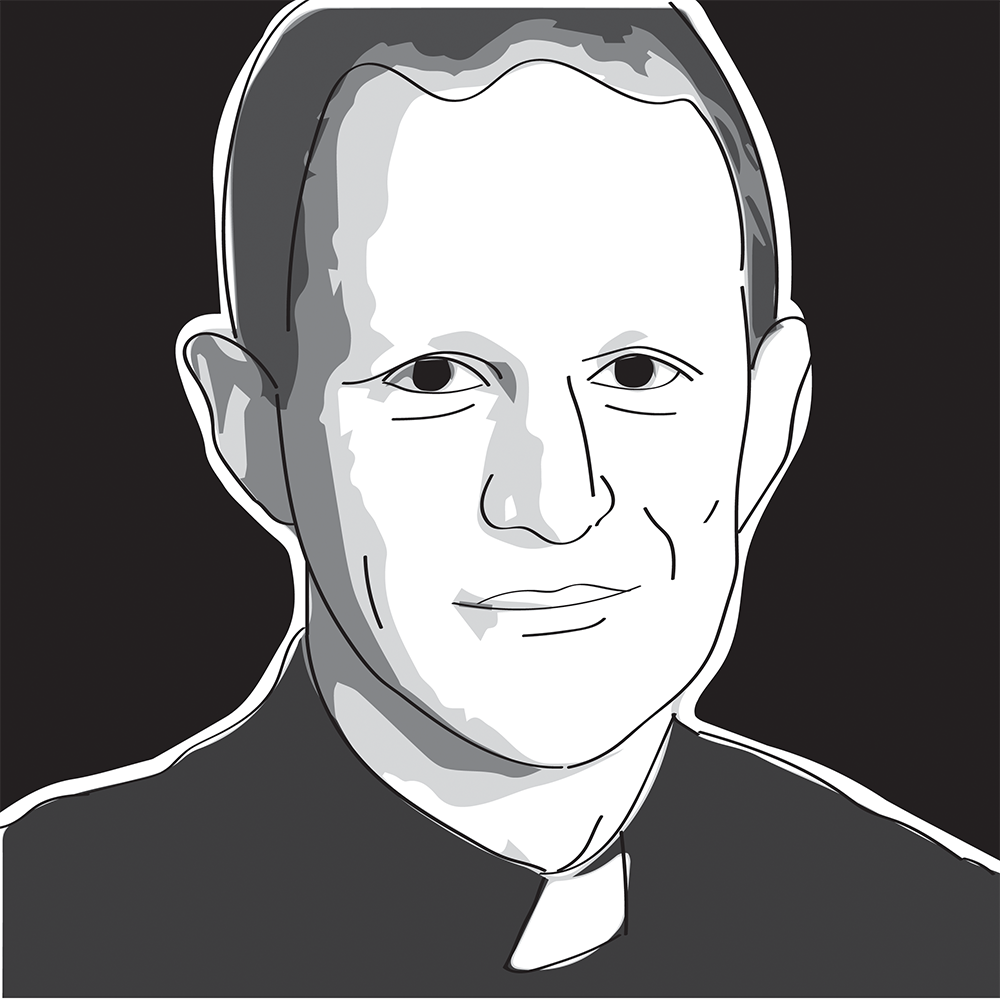The bells of Healy Hall and Dahlgren Chapel departed from their normal rhythm on the afternoon of Aug. 25. For four long minutes, beginning at precisely 3 p.m., they joined bells across the nation to toll in memory of the four centuries that have passed since the arrival of the first ship carrying enslaved African people to Port Comfort, Va.
Given that the commemoration came in the midst of New Student Orientation, with all the rush and excitement of convocation and goodbyes to parents, it was a moment that could easily have gone overlooked. Yet, if we have the ears to listen, the quiet, steady tolling of those bells ought to set the tone — the backdrop — for all we will do in this coming academic year.
A few of us were gathered there in Dahlgren Quadrangle, Jesuits and campus ministers and other members of our university community, to silently listen, reflect and pray. It was a spectacular late summer afternoon, and the clouds billowing over the steeple and towers added to the sense of greater meaning of the day. The bells insistently called us to remember a history that we neglect, one that began in 1619 with a foundational sin, an act of brutality that was repeated innumerable times and defines our nation and its institutions to this day.
The bells made me think, too, of another date 15 years later, in 1634, when Jesuits first arrived in these English-speaking colonies in the Americas. Like the new nation that took shape on this continent, they did not invent the practice of slavery or bring it to these shores, but they did over the ensuing decades adapt to it and become enslavers themselves. Some even adopted and developed elaborate defenses of the practice, and collectively they engaged in one of the largest mass sales of enslaved persons of their era.
This history of enslavement in our nation is truly our history here at Georgetown University, and it is personal. Our records provide the names and ages of enslaved persons and their children, as well as of the Jesuits who owned, bought, managed and sold them. We can trace out the self-serving lines of reasoning that were used to justify these actions, and we can see countervailing voices that were raised but failed to carry the day when it mattered most. And we can trace out the long legacy of forced labor, separations of families, discrimination and harm, the effects of which persist to this day.
Yet remembering takes work, and the rush of the semester and the pressures of the day can too quickly become excuses for letting our painful history fade from our attention. Talking about hard truths, and how to engage with them, can make us deeply uncomfortable. Too often in the past, we as a nation and as a university community have remembered but then moved on.
It is for this reason that one of the central recommendations of the Working Group on Slavery, Memory, and Reconciliation is to ensure our historical involvement in the practice of slavery never again drops from our attention. Many members of our extended community have actively taken up this charge — descendants of the enslaved persons, Jesuits at Georgetown and beyond, faculty, students and administrators — but the call extends to all of us.
How will we hear the bells as we begin this academic year? For they are truly urgent, and they embed us in both the injustices and dehumanizations of our past and of our present. How will we interrogate our history, and how will we question our current national divisions across political, economic and social lines? How will we let the hard facts of persistent inequalities shape our decisions about how we spend our time, both individually and as a community? When will we raise our voices, and when will we fall silent and truly listen, especially to those whose voices have been ignored? And how will we ensure that this world, which we did not personally invent but has profoundly shaped us and to which we can adapt too easily, becomes more just and more inclusive through our choices and actions?
The bells of Healy Hall will continue to sound, persistently and insistently, every 15 minutes. Will we have the courage and commitment to hear them?
Fr. Matthew Carnes, S.J., is an associate professor in the department of government and the School of Foreign Service, and he served on the Working Group of Slavery, Memory, and Reconciliation. As This Jesuit Sees It appear online every other Tuesday.














